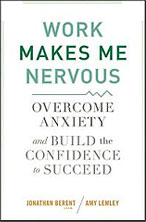Social Phobia Treatment and Resources
The essential feature of social phobia, as defined in the DSM-IV (Diagnostic and Statistical Manual of Mental Disorders), is a marked and persistent fear of social or performance situations in which embarrassment may occur. Exposure to the social or performance situation almost invariably provokes an immediate anxiety response. Anticipatory anxiety (obsessive worry) may occur far in advance of the upcoming social or performance situation. Most often, the social or performance situation is avoided, although it is sometimes endured with dread. Treatment for social phobia can be found by seeing a licensed therapist who specialized in such disorders. Click here to listen to interviews with real people who have resolved social phobia.
Social phobia is also known as social anxiety disorder. Social anxiety is fear. Fear has a multi-dimensional character: thoughts (cognition), emotions, and physiological response. When the fear (anxiety) gets to the point that a situation is avoided, a phobia is present. Common social phobias include (to name just a few):
fear of public speaking
fear of groups
fear of conversation (selective mutism)
fear of intimacy
fear of relationships
fear of socializing
fear of school
fear of sports
fear of performing.
Social phobia – commonly defined as performance anxiety – is, according to a November 1991 article in the Journal of Clinical Psychiatry, “an emerging problem that is just beginning to receive attention”. In the ‘90’s it was “emerging”. Now, social phobia is the anxiety disorder of the millennium, as society is firmly entrenched in dynamics of competition, rapidly developing technology, and pressure for productivity. Don’t wait any longer to get treatment for social phobia.
Listen to interviews from individuals who conquered their phobias.
Self-Help and Treatment Options
- Free Audio CD from Social-Anxiety.com
- Social Anxiety: The Untold Story
- Beyond Shyness: How To Conquer Social Anxieties
- Work Makes Me Nervous
- Comprehensive Self-Therapy Audio Program
- Public Speaking Anxiety Self-Therapy Audio Program
- “Warm Hands Cool Face” A Self-Help Clinical Program for Blushing Anxiety & Erythrophobia
- The Berent Method: High Performance Therapy for Social-Anxiety
- Telephone/skype therapy available worldwide
- Selective Mutism Seminar Audio CD/MP3 Program
- Self-Help Program for Parents of Children with Selective Mutism
- The Sociability Questionnaire
- Tip of the Month Club
- Social Therapy and The Learning Disabled
- Free Parent Addiction Survey


